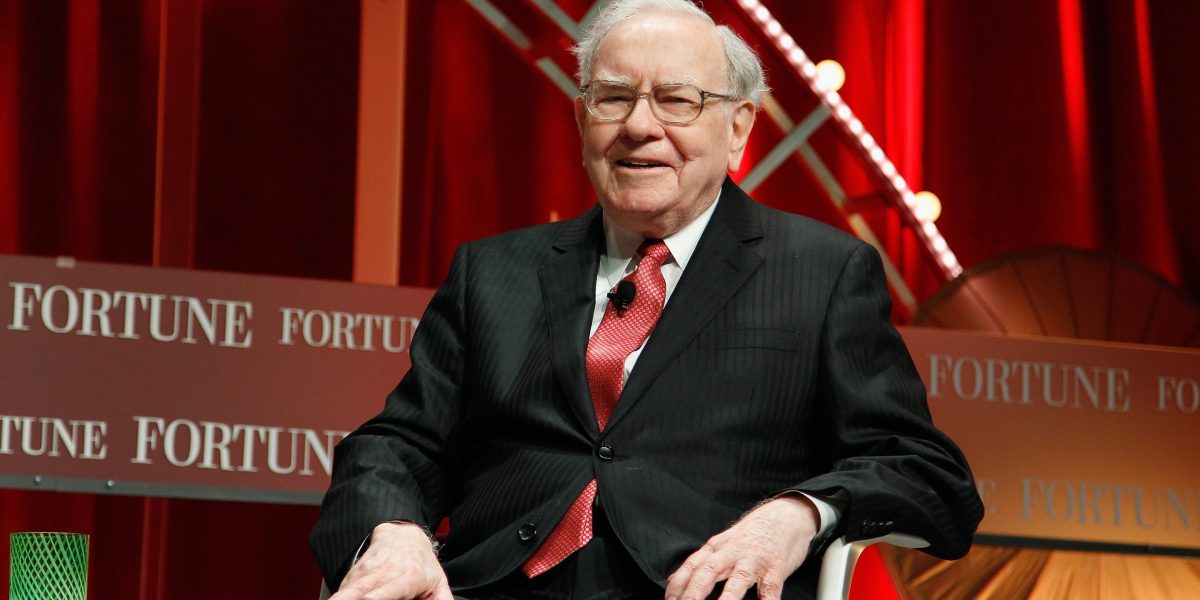The world’s most famous value investor is sitting on an enormous cash pile. Warren Buffett’s conglomerate Berkshire Hathaway currently holds more than $325 billion in cash and equivalents, according to the firm’s quarterly financial statements, most of it in U.S. Treasury bills.
Everyone wants to know why. Is he cashing out because he sees an unstable market priced too high? Are there no opportunities presenting themselves to him? Is he making way for a successor?
The stock market is hot, booming, on a winning steak. The S&P 500 surpassed the 6,000 mark. This year has been one of the best-performing years since 2000. Corporate valuations are soaring, and profits are too. This week, Nvidia crushed expectations, doubling its profits with its revenues surging on the back of artificial intelligence. But Buffett has always looked for undervalued companies with potential to invest in for the long term: a value investor. The Oracle of Omaha, as he is called, once said he doesn’t invest in things he doesn’t understand, such as technology companies, apart from Apple of course. Although part of that mounting cash reserve is from aggressively selling shares of Apple.
Cathy Seifert, a director at CFRA Research, explained that “Apple was becoming an outsized piece of the portfolio,” so the offloading “made sense.” Berkshire was late to the tech game, but they had a decent run with Apple, she said. On the other hand, Meyer Shields, a managing director at Keefe, Bruyette & Woods, said the firm might have thought “it was fairly valued, or maybe more than fairly valued.”
“Berkshire has succeeded over the decades by being boring in that way,” he said.
Either way, it’s a lot more difficult to speculate about the cash. While it’s a crazy market, Seifert said Buffett is a value investor who “tends to zig when everybody else zags…he’s not going to be swayed by momentum, certainly not.”
According to Shields, what some describe as a hot stock market, “Warren Buffett would describe as overpriced.” Berkshire investment managers Todd Combs and Ted Weschler seem to have opened the company to technology exposure, he said, but it’s still possible they see a lot of it as “overpriced relative to whatever internal valuation metrics that they use, and because of that, they’re not averse to not investing in that market.”
Berkshire buys pizza and pools
However, Berkshire did recently buy some stocks: Domino’s Pizza, a favorite pizza franchise, and Pool Corporation, a swimming pool supplies company. After all, Buffett favors junk-food stocks, and really, just junk-food, but who doesn’t. At the end of the third quarter, Berkshire’s stake in Domino’s was valued at around $549 million while the Pool stake was valued at about $152 million, according to Yahoo Finance.
Overall, the stock market has reacted positively to Donald Trump’s win, and therefore another Trump presidency, but Berkshire doesn’t appear to be getting in on the action. It could be because those at the firm don’t see the post-election rally being sustainable, Seifert explained, calling Trump’s policies inflationary. “Their enthusiasm for market valuations is certainly tempered,” she said. Not to mention, Berkshire’s overall financial results in the last quarter were pretty weak in her mind, so Seifert believes it’s looking cautiously at its own financial results and market valuations—and maybe one other thing.
“I don’t think anyone is expecting that cash pile to be deployed into the equity markets, per se,” she said. “I think investors are looking for Berkshire to make an acquisition.” Trump 2.0 could mean an easier regulatory environment, particularly as it relates to mergers and acquisitions. Even so, with the rise of private equity, there’s more competition for target companies, Seifert said.
Greg Abel has been named to succeed Buffett in helming Berkshire Hathaway when the time comes. Still, Seifert doesn’t think cash hoarding is “necessarily with an eye towards succession,” she said. To her, it instead “reflects a fundamental skepticism about the sustainability of current market valuations, the sustainability of the Trump trade, combined with the fact that they’re not seeing a lot of acquisition targets that are appealing to them.”
Still, Berkshire doesn’t pay a dividend, except for one notable exception in 1967, so cash accumulates overtime. One of its methods of using the cash, buying back its stock, isn’t being used. That brings us right back to succession planning.
“The unfortunate actuarial reality is, at some point in time, you have a change in senior management, and I suspect that they want to have a lot of cash to buy back Berkshire Hathaway stock,” Shields said.
He continued: “When that happens, our expectation is that we wake up tomorrow, Warren Buffett is not there, the stock sells off. There are a lot of people that own Berkshire Hathaway, I think, because of Warren Buffett. They want to have plenty of cash available so that they can utilize any sell off to the benefit of the shareholders.”
Either way, Buffett doesn’t dive head first into the latest investment craze, Seifert explained, and in the past, it’s worked out for Berkshire. Plus despite the “sort of an embarrassment of riches there,” as the cash pile expands, the return on it is rising, too. It’s making money just sitting there.

